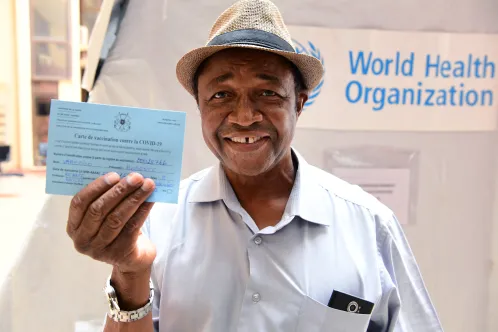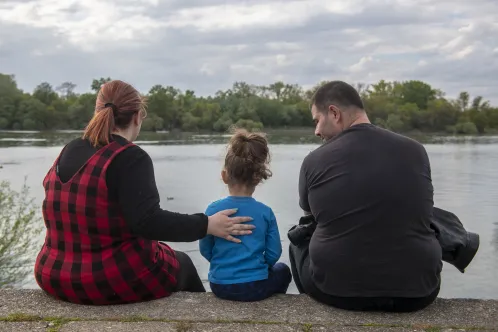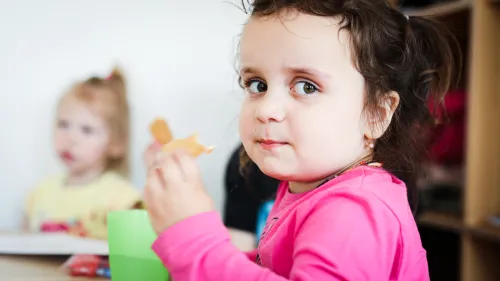The global impact of COVID-19
UNICEF’S COVID-19 RESPONSE
The COVID-19 pandemic has had an unprecedented and devastating impact, especially on low-income countries. Inequitable access to COVID-19 vaccines has left many countries struggling to control the spread of the virus and has led to the emergence of more infectious variants.
With the help of generous people across Canada, UNICEF and our partners came together to provide low-income countries with vaccines and the necessary tests, treatments and equipment to fight the pandemic. As a result, hundreds of millions of people have received COVID-19 vaccines since 2020, and the vaccination rate in many countries has risen significantly.
Though COVID-19 is no longer classified as a global emergency, the virus is here to stay and remains a global health threat. That's why UNICEF continues to reach children and families in the hardest-hit countries with the support they need to withstand the ongoing impact of the COVID-19 pandemic.
COVID-19 VACCINES DELIVERY
Thank you for helping us make history.
Since we launched our COVID-19 Emergency Fund in 2020, more than 63,000 supporters across Canada have stepped up and raised over $59 million for global vaccination efforts.
As of December 2022, supporters of UNICEF Canada had helped UNICEF achieve its global goal to deliver almost 2 billion COVID-19 vaccines to 146 countries through COVAX, the largest vaccine supply operation in history.
UNICEF, along with our COVAX partners, aims to ensure that all participating countries and territories have the vaccine protection they need. Our global presence and expertise in vaccine delivery in challenging environments have made us instrumental in delivering COVID-19 vaccines, tests, treatments and equipment on a global scale.
With the help of our partners and donors, we have:
- Shipped US $64.8 million worth of personal protective equipment to 44 countries under the COVAX Advance Market Commitment;
- Trained 300,000 COVID-19 vaccinators and support staff in 85 countries on various topics related to COVID-19 vaccine delivery;
- Delivered 2.1 million COVID-19 diagnostics tests to countries that are responding to humanitarian situations.
Together we got vaccines, equipment and therapies to those who needed them most.
STRENGTHENING HEALTH SYSTEMS AND PROVIDING LIFE-SAVING SERVICES
From supply-chain disruptions to inadequate health facilities, the COVID-19 pandemic has taught us the importance of global health, and the deep inequities that exist.
As part of our pandemic response, UNICEF is strengthening health systems to not only vaccinate people against COVID-19, but to better protect them from health emergencies in the future.
Improving health systems is one of the most effective ways to transform children’s lives. And as immunization rates backslide while conflict, economic strife and climate change threaten food security, the world needs strong and resilient health services more than ever before.
In addition, UNICEF continues to respond to the urgent needs caused by COVID-19 and other crises by providing essential health and social services.
In 2022, UNICEF and our partners:
- Vaccinated 23.8 million children against measles;
- Treated 2.6 million children for severe acute malnutrition;
- Gave 28 million children access to education, including early learning;
- Provided 25.9 million people access to enough safe water for drinking and household use;
- Provided 5.5 million people safe channels to report sexual exploitation and abuse.
There’s a lot more work to be done.
Please help us continue providing life-saving aid and services so that every child has what they need to grow up safe and healthy. Donate now.



